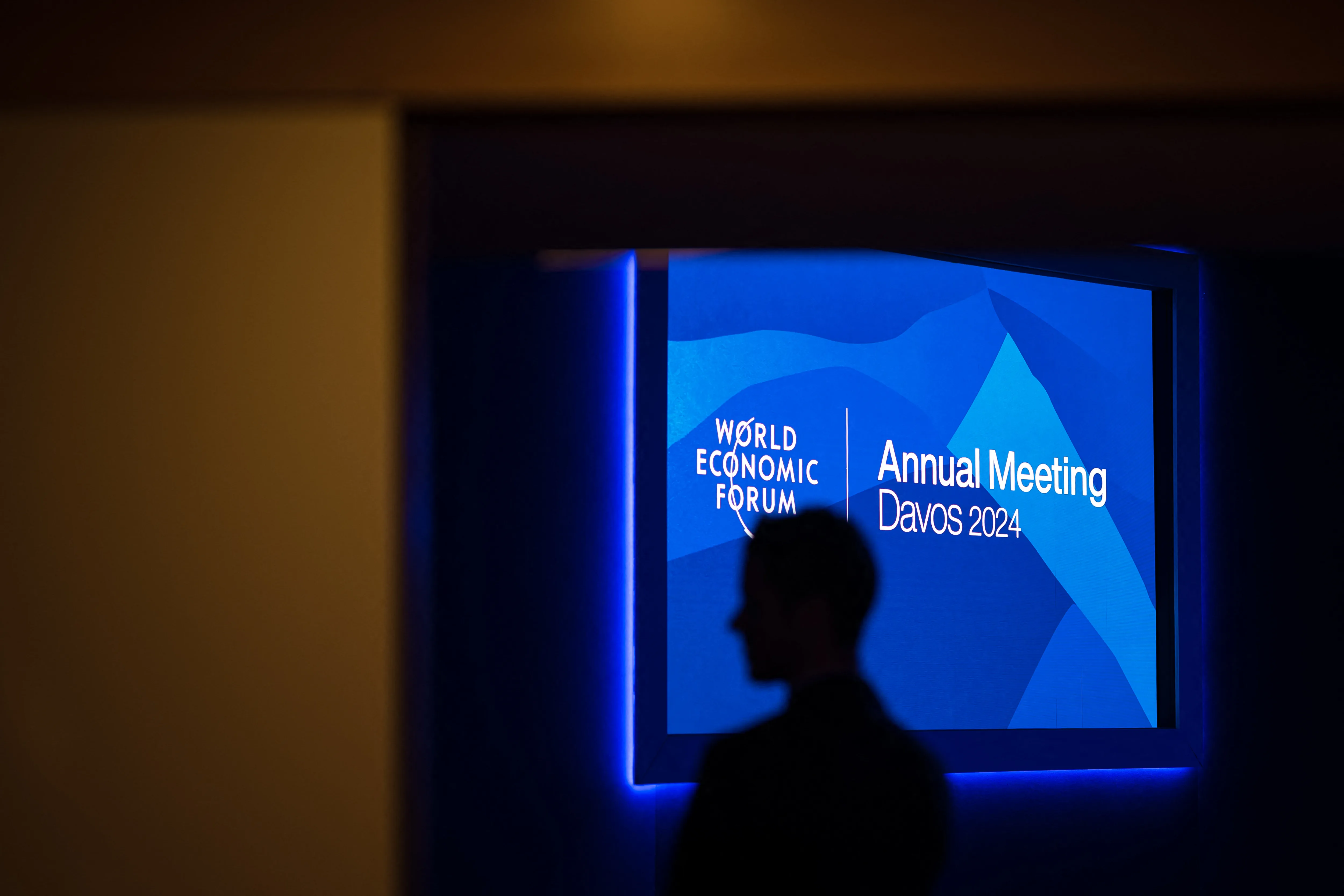
Many observers and analysts hold the view that Africa’s mineral resources can be harnessed to facilitate its industrialisation. Unlike in the past when Africa was content to export raw materials, leaders on the continent are now expressing firm determination to pursue commodity-led industrialisation.
Achieving this objective will require a coordinated approach, significant private investment and clear and consistent national, regional and continental policies. These were some of the views put forth in a panel discussion on the sidelines of the 2024 World Economic Forum in Davos, Switzerland.
On the panel, moderated by Omar Ben Yedder, publisher of African Business, were Denys Denya, executive vice president at African Export-Import Bank (Afreximbank); Sanjeev Gupta, director of finance at Africa Finance Corporation; and Eugene Mayne, chief executive officer of the Tristar Group, an energy logistics business serving the downstream oil and gas industry.
Opening the panel, Denya said that there are increasing examples of success in value-addition on the continent. One such partnership, he said, is Afreximbank’s Africa Cocoa Initiative in conjunction with Côte D’Ivoire, Ghana and Cameroon, which aims to increase the amount of cocoa processed on the continent.
“At the time, Côte D’Ivoire processed only 25% of its cocoa. We intervened by facilitating the local entrepreneurs to produce intermediate products like cocoa butter and cocoa powder. By 2015, Côte D’Ivoire had overtaken the Netherlands, with about 585,000 metric tonnes of processed cocoa. We are now trying to expand this initiative to other products like cashew, cotton and other agricultural products.”
In South Africa, it is supporting Nyanza Light Metals with a $750m industrial complex to facilitate the beneficiation of titanium in the country. Another initiative is the partnership with the governments of Zambia and the Democratic Republic of Congo, which together account for about 11% of the global supply of cobalt, to develop a value chain in battery production for the electric vehicle industry.
“We are looking at the deliverables and asking how we can industrialise, produce what we need, export, create more jobs on the continent and earn more from our resources,” he said.
Building on success
Tristar Group’s Mayne observed that Africa’s economic fortunes have consistently been linked to its vast resources. The continent experiences growth when those minerals are in high demand, such as in the 1950s and 60s, when Europe and Asia relied on African commodities for post-war reconstruction and in the early 2000s, when China’s economic boom once again fuelled demand for commodities.
Outside of these periods, the continent has struggled, with low prices as well as structural economic and political challenges hampering its growth. These historical challenges mean that Africa “has to grow at full speed just to stay still,” he said.
Mayne noted that the “flagship programmes of the AU’s Agenda 2063 envisions commodity-led industrialisation to identify, formulate and drive programmes that will enable Africa countries to add value and promote both vertical and horizontal integration.”
In particular, the AU’s mining regime identifies key priorities that can enable diversification and the emergence of a globally competitive sector.
“Accelerating productive transformation in this sector requires a strategic shift from the traditional extraction and export of commodities to massive investments in in-country productive transformation and industrialisation supported by investor friendly policies and stable macro-economic conditions,” Manye argued.
African Finance Corporation’s Sanjeev Gupta concurred, adding that a sustainable ecosystem that adds value to African minerals, using renewable energy, will have immense benefits such as job creation, diversification of supply chains and reduced shipping for goods.
He explained that Arise IIP, a company in which AFC has 70% equity, seeks to help African countries to process their commodities and has had success in Gabon, which now exports furniture instead of timber, Uganda, which has replaced cotton exports with t-shirts, and Chad, where processed meat has taken the place of the live animals that it once exported.
“That is a big area for us – how do we work with governments to show them that if you provide us with the political and social support and pass the necessary laws, we can bring in the private sector capital to add value at source that creates jobs and exports. That’s the way it has to be,” Gupta said.
Another project that AFC is backing is the joint effort by Zambia and the DRC to produce battery precursors. Gupta said an additional benefit of this project is a railway corridor from the copper mines through Angola to Africa’s west coast, which will facilitate exports to the USA.
Mayne observed that good logistics, infrastructure and the free movement of people and goods are all precursors to successful cross-borden projects. However, getting consensus between countries for such schemes can be difficult.
“I know some projects that were launched five or six years ago that are still struggling,” he lamented.
One of the key barriers to building African infrastructure, Mayne said, is the absence of early-stage funding for project development.
“Global capital is either not interested or incapable of taking that risk and that means that we as African institutions must take that early-stage risk, create the projects that make financial sense. That also means working with local governments and communities so that projects are sustainable and meet the fiscal and political priorities,” he urged.
Another area that African governments need to address urgently, Denya argued, is policy consistency.
“One day they announce that they are banning the export of one product and the next day they are not. Tou can’t really focus on how to add value to what,” he said.
Be realistic about goals
One industry where all of these issues are of pressing importance is the emerging electric vehicle industry. Responding to the question of how Africa can assert itself in the electric vehicle industry, given its wealth in the critical metals that are used to make them, Mayne said it was important for Africa to be realistic about its goals.
“Africa is at a stage of industrialisation where for it to even aspire to become a massive global car manufacturer in the next 10-20 years would be a very ambitious target,” he said.
Rather, the continent should focus on taking small steps such as eliminating the export of primary goods and adding value to these products incrementally.
“We don’t have the energy solutions, the infrastructure solutions, the skills and in many ways, the political support,” he said.
Citing Afreximbank’s cocoa scheme, Denya said that gradual steps were a surer path to success.
“We did not aim to produce chocolate; we produced butter, liqueur and other intermediate products that can fetch a higher price than the goods,” he recalled.
Gupta noted that Africa will not suddenly become a big market for electric vehicles in the near term. Mayne noted the various infrastructural and logistical challenges, such as charging stations and roads that must be resolved to facilitate mass use of electrical vehicles on the continent.
“This will take time so we shouldn’t run ahead with electrical vehicles. I think once the market is ready, you’ll have a critical mass of vehicles and users,” he said.
Gupta recommended an “Airbus model” which he said is a living example of European solidarity, where different countries produce different components that come together to form the plane. A collaborative strategy of this type could support the emergence of an African electric vehicle sector, he says.
“There has to be that ability for African governments to get together and say we are going to build a manufacturing hub with technologies, skills and people coming from different parts.”
The key thing, he said, is to begin adding value to products in a systematic manner.






Recent Comments